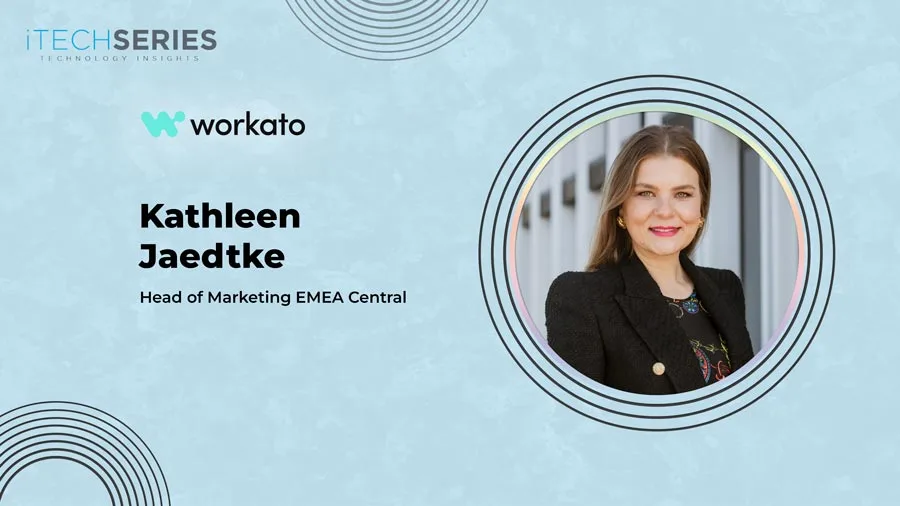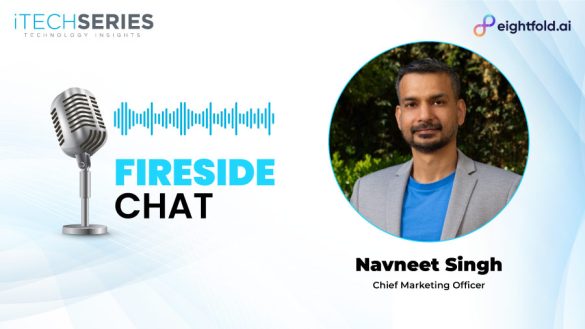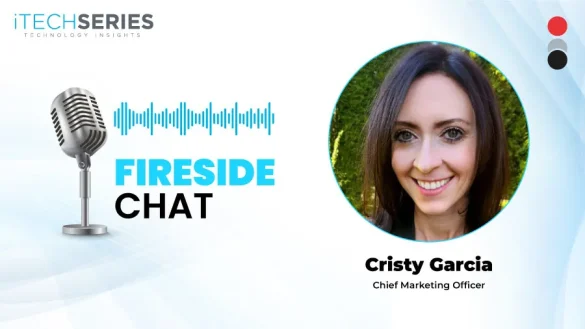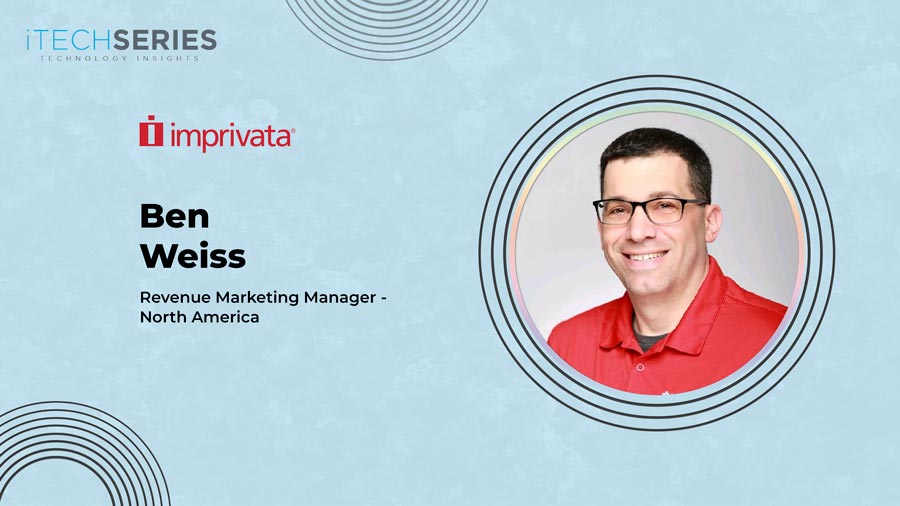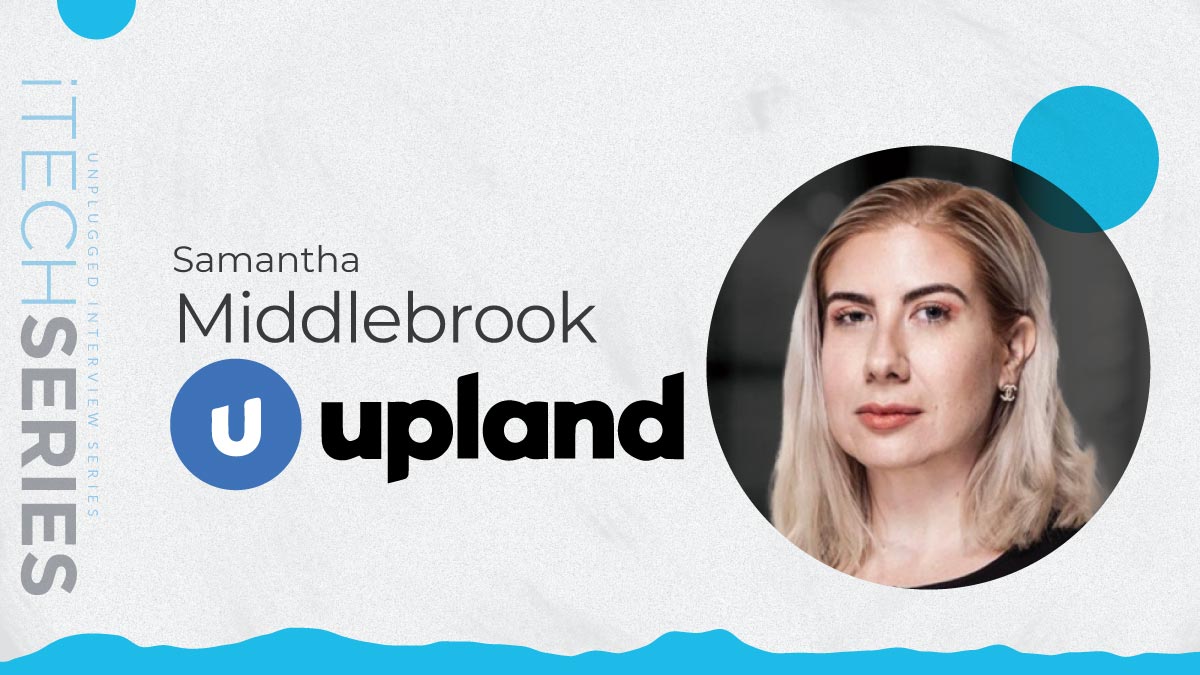Kathleen Jaedtke, Head of Marketing EMEA Central at Workato, shares her cross-industry journey spanning B2C and B2B roles at Rocket Internet, Zalando, and HubSpot. She discusses uniting brand and demand, driving personalization through AI, navigating DACH market complexities, building customer-first strategies, fostering marketing leadership, and scaling global impact through localized execution.
It’s a pleasure to have you, Kathleen. Could you tell us more about yourself and your marketing journey?
Thank you for having me.
My marketing career has spanned both B2C and B2B, shaped by a variety of experiences across different industries and markets.
I began with a master’s in economics but quickly realized my interests lay in the dynamic world of marketing. My first role was at the startup factory Rocket Internet in Berlin, where I gained valuable experience in a fast-paced, entrepreneurial environment that shaped my approach to marketing.
I then joined Zalando during a key growth period, leading content marketing activities across Germany, Austria, and Switzerland in the B2C e-commerce space. One career milestone was building and managing several international SEO teams, demonstrating how strategic content can deliver strong business results across diverse markets.
Later, I moved into B2B at HubSpot as Head of Marketing & Brand DACH, working with a talented team of German-speaking marketers and learning how different, yet complementary, B2B marketing is compared to B2C.
From 2020 to 2024, I also lectured in content marketing and SEO at Cologne University of Applied Sciences, which kept me engaged with new trends and fresh perspectives from both marketing worlds.
I currently serve as Head of Marketing EMEA Central at Workato, overseeing marketing across DACH and Benelux and developing strategies that effectively connect our brand with target audiences.
How do you strike the right balance between long-term brand-building and short-term lead generation in your marketing strategy?
Brand and demand aren’t competing priorities-they’re force multipliers for each other’s success. The real shift comes when we move beyond traditional silos, where brand is viewed as the “long game” and demand generation as the “performance engine.” The most effective strategies today integrate the two, building campaigns that fuel both awareness and pipeline. Brand-building fosters trust, strengthens awareness, and lowers acquisition costs. Demand generation delivers immediate pipeline and revenue. The real power lies in their intersection-think customer success stories that both build credibility and drive conversions, or community events that enhance brand affinity while generating qualified leads.
We’re now in the era of allbound, blending inbound, outbound, partnerships, thought leadership, events, and paid channels. It’s no longer just about acquisition; it’s about optimizing the entire customer journey to create a more efficient pipeline with lower acquisition costs and higher lifetime value.
Clear KPIs and strong alignment between brand and demand teams are critical. When both work in sync and share accountability, marketing becomes a unified growth engine-delivering quick wins while building lasting impact.
What impact has the shift toward personalization and data-led decision-making had on B2B marketing practices?
The move toward personalization and data-driven decision-making has fundamentally reshaped B2B marketing, making it more precise, efficient, and accountable. Where marketers once relied on broad segmentation and generic campaigns, today they harness rich insights from CRMs, intent platforms, marketing automation, and digital behavior tracking to create tailored experiences across the entire buyer journey. Messaging, content, and outreach can now be customized not just by industry or company size, but by specific accounts, buying stages, and individual personas.
This evolution has propelled account-based experience (ABX) into the spotlight. ABX goes beyond traditional account-based marketing (ABM) by aligning marketing, sales, and customer success around the entire buyer journey-from first touch to renewal. By leveraging firmographic, behavioral, and intent data combined with real-time insights, ABX delivers personalized, consistent interactions tailored to each stakeholder’s needs.
This approach not only drives new business but also focuses on retention, upsells, and long-term loyalty. Central to ABX is cross-team collaboration and shared accountability, creating seamless experiences that convert and retain customers in today’s complex sales environment.
This shift has introduced greater complexity, requiring teams to have the right technology infrastructure, strong data governance, and advanced analytical capabilities. Personalization and data-led strategies have made B2B marketing more customer-focused, results-driven, and measurable, transforming not only how marketers work but also how they demonstrate value to the business.
“Customer-first marketing starts with deep understanding of pain points, goals, behaviors, and market maturity and adapts with cultural context.”
How do you ensure customer-first marketing remains central in B2B SaaS campaigns, especially across diverse regions?
Putting customer-first marketing at the core of B2B SaaS campaigns-especially across diverse-regions requires a mix of global strategy and local execution, grounded in deep customer insights and cultural awareness. It starts with understanding the customer: their pain points, goals, challenges, buying behaviors, and market maturity.
Our Customer Advisory Board (CAB), composed of visionary international customers, shapes Workato’s product roadmap and receives early beta access in exchange for honest feedback, ensuring a customer-centric approach. These insights enable marketers to create messaging and content that is not only relevant to the customer’s role or industry but also resonates within their specific regional context. Continuous feedback from sales, customer success, and direct surveys keeps marketing aligned with evolving customer needs.
Technology also plays a vital role. Data-driven tools support audience segmentation, and scalable personalization and help identify what resonates across regions.
What’s the most important insight you’ve gained from implementing AI-powered tools in your marketing processes?
The biggest insight I’ve gained from integrating AI-powered tools into our marketing is that AI delivers the most value when it enhances, not replaces human creativity and strategic thinking. Tools like ChatGPT and Canva have helped me speed up content creation, sharpen targeting, and analyze data more efficiently. But it’s how we leverage those insights that truly drives impact. Using the Workato GO Super App has made me more efficient by providing instant access to company information across all apps and data, helping me find exactly what I need quickly.
AI has empowered us to make faster, data-driven decisions, improve personalization, and boost campaign efficiency. However, success depends on clean data, clear brand alignment, and ongoing human oversight.
What are some of the biggest challenges while building go-to-market strategies for the DACH market?
The DACH region, comprising Germany, Austria, and Switzerland, offers significant growth potential, being Germany as Europe’s largest economy. However, entering this market requires more than a solid product; companies must navigate cultural, regulatory, and operational complexities.
Sales cycles are longer due to a risk-averse business culture. Enterprise buyers demand thorough technical validation, comprehensive risk assessment, and alignment with local regulations before considering a solution. Innovation adoption is slower, not from disinterest, but because trust and validation are prerequisites. Germany is among the most skeptical markets toward new vendors, making brand recognition essential. Buyers often prefer providers they know, so long-term brand-building, social proof, and reputation marketing are vital. Localized testimonials, peer use cases, and third-party validations help reduce perceived risk. Once trust is earned, relationships are loyal and long-term. Communication must be fact-based, precise, and culturally attuned. German business culture values reliability, clarity, and directness. Overpromising or emotional marketing—common in U.S. campaigns—can backfire. Localization goes beyond translation; messaging should reflect regional values and be delivered in the native language.
Regulatory compliance is a major challenge. Germany enforces some of Europe’s strictest GDPR interpretations, with requirements like double opt-in for email and detailed contractual licensing agreements. Legal guidance is critical, as non-compliance can damage reputation. Security and compliance are top priorities, so marketing must address data handling, storage, and protection. Partnerships and events carry significant weight, with in-person interactions and local partners serving as trusted bridges. German-speaking support teams are essential, as customers’ value transparency, responsiveness, and continuity.
Common mistakes include underestimating regulations, relying solely on English content, expanding too quickly without localization, or overusing automation at the expense of personal connection. Success in DACH requires a long-term approach: understanding the market, prioritizing localization and compliance, and building meaningful relationships to unlock its full potential.
What key advice do you have for marketers looking to grow into leadership roles and build strong, high-performing marketing teams?
Start by taking initiative beyond your immediate role—volunteer for cross-functional projects, lead interns, and look for opportunities to make your impact visible across the organization. Invest in your growth through leadership programs (such as Workato’s WALP and ELP), read widely on marketing and leadership, take relevant courses, and find a mentor to guide your development. A key step in preparing for leadership is developing business acumen beyond marketing. Understand how your function drives revenue, supports customer retention, and enables scalable growth. Spend time with sales, customer success, and product teams to learn their goals and challenges and how marketing can support them. That cross-functional understanding is critical for aligning marketing strategy with broader business objectives.
Equally important is building data literacy early. Today’s marketing leaders must be fluent in analytics, attribution modeling, and performance optimization. It’s not just about knowing the numbers—it’s about turning data into actionable insights that resonate with non-marketing stakeholders and inform decisions. As you grow into leadership, remember your success depends on developing others. High-performing teams thrive when members have clear growth paths and when their strengths align with business needs. I’ve seen my team perform best when they understand how their efforts contribute to larger outcomes.
Leadership also requires fostering psychological safety. People need to feel safe to speak up, take risks, and share ideas without fear of dismissal. This starts with trust, transparency, and open communication and is key to building a culture of innovation and accountability. Collaboration is another cornerstone. Marketing doesn’t operate in a vacuum. Some of the most effective campaigns I’ve been part of came from deep collaboration across sales, product, and customer success. Strong cross-functional relationships elevate your team’s impact and visibility.
Finally, embrace continuous learning. The marketing landscape, especially in B2B SaaS, evolves constantly. Stay current with trends, but more importantly, develop a critical lens for evaluating new tools, strategies, and platforms. The best leaders combine strategic thinking with operational excellence—while staying relentlessly focused on the customer.
About Kathleen Jaedtke
Kathleen Jaedtke is a seasoned B2B SaaS marketing leader, author, and speaker, currently Head of Marketing EMEA Central at Workato, overseeing DACH and Benelux. She has held leadership roles at HubSpot and Zalando, where she built international SEO teams and drove impactful content strategies. A former lecturer at Cologne University of Applied Sciences, she has served as a jury member for Forbes 30 Under 30 DACH and the DPR Awards, bringing cross-industry expertise to brand growth.

